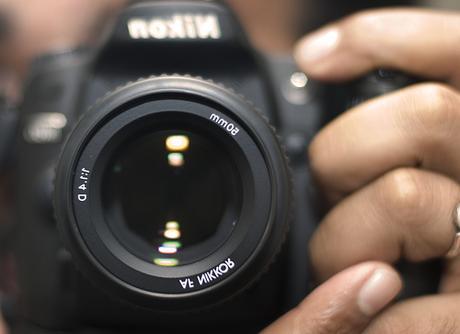
Taking nonconsensual photos is unacceptable.
Despite a popular myth to the contrary, what a woman chooses to wear is hardly the only factor that contributes to her public objectification — objectification that often overtly violates women’s consent. For example, many women have experienced strangers not only objectifying them based on the length of their skirts, but have (knowingly or not) been subjected to others looking up their skirts and even taking photos up them, too.
As of July 2016, this unfortunate phenomenon became completely legal in Georgia. On July 20th, The Georgia Court of Appeals asserted that the state’s invasion of privacy laws doesn’t account for taking a photo up a woman’s skirt (known as the “upskirt” photo) unless she’s “behind closed doors,” like in a bathroom or bedroom.
Multiple men have been arrested throughout Georgia for creepily taking such pictures of women on the streets. But in the recent case of Brandon Lee Gary, a public store owner who was accused of taking upskirt photos of women at his store, a Judge ruled that “invasion of privacy” laws only protect victims if these crimes take place in hidden, non-public places.
“No law currently exists which criminalizes Gary’s reprehensible conduct,” the ruling says.
Georgia isn’t alone. Many states don’t have any specific laws regarding public harassment of women. For example, a Washington D.C. judge ruled in 2014 that women cannot have a “reasonable expectation of privacy,” especially when photographed clothed and positioned in a public space. That same year, Massachusetts outlawed upskirt photos, but only shortly after the state realized that street harassment and laws protecting people while “partially nude” were exclusive. Texas’ new law which punishes people photographing or filming someone’s private parts without consent, just recently took effect in 2015.
It should go without saying that being on the receiving end of upskirt photos is incredibly invasive, demeaning, and embarrassing. But attitudes like Gary’s also contribute to greater, already pervasive cultural norms of cyberbullying and sexual harassment. For example, six male high school students in Nova Scotia recently took photos of at least 20 young female students without their consent. Thousands of intrusive photos have been covertly taken of women at beaches, on public transportation, and elsewhere before being shared under two hashtags on Twitter over the course of 4 years. Many of the women in these pictures are underage and some of their faces are visible. If this isn’t an illegal act of harassment, violated consent, and cyberbullying, then what is?
Some perpetrators argue that the right to take these photos — to invade women’s personal privacy in public — falls under their rights to “free speech” and “free expression,” and that the ability to take nonconsensual photography is protected by the first amendment. But the line must be drawn when subjects are unknowingly objectified in the process.
If you find that you’ve been photographed unknowingly or without consent, please consider contacting a law enforcement official and reporting this instance as a crime. Some advocacy organizations addressing upskirt photography and providing support to victims and survivors include Stop Street Harassment and The Pixel Project.
There’s a crucial line that must be drawn between individuals’ safety and free speech, and it’s important for all women and men to understand this.

